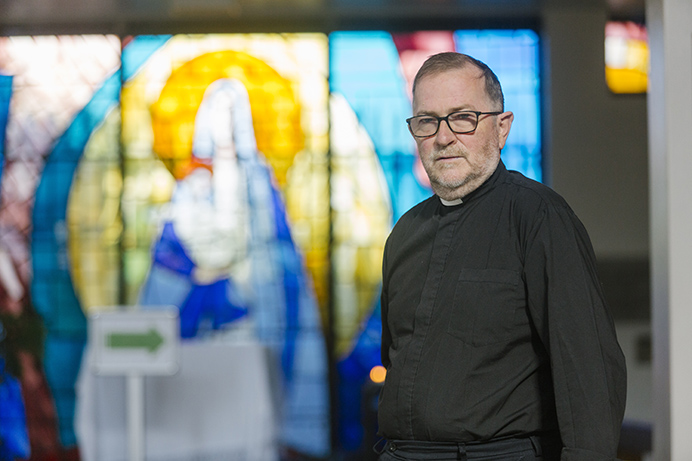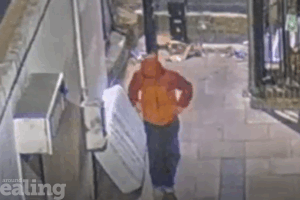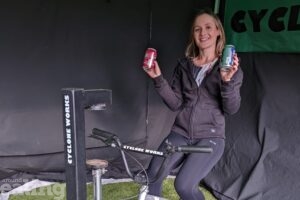“The impact of homelessness on our community is really quite immense”, according to Father Gerard Mitchell. As someone who works every day to support rough sleepers in Southall, he is concerned that the benefits gained from placing them in safe, secure accommodation during the pandemic are about to be thrown away, sending them over a “cliff edge” towards destitution.
Father Gerard is a leading figure in Hope for Southall Street Homeless, a charity which provides help for homeless people with nowhere else to turn. In many cases, that is because their immigration status means they have no recourse to public funds (NRPF) and cannot claim benefits or legally work or rent a home. During the pandemic, Ealing is supporting more people with NRPF than any other local authority in the country.
No recourse to public funds
“Our clients reflect the history of migration in Southall and are overwhelmingly from the Punjab,” he told us. “Most of Southall’s rough sleepers are caught up in the immigration system and have no recourse to public funds, which means they are unable to work or claim benefits and can quickly get into difficult situations. It makes them particularly vulnerable. If they lose their jobs in the informal economy, they can quickly end up on the streets and involved with drink and drugs.
“We operate an all-year round night shelter for people who have nowhere else to go. Giving them a roof over their heads means we can provide a gateway to accessing help with their health and personal needs, as well as immigration status questions. Many of them have high needs and dependencies. However, COVID-19 means the shelter has had to close.”
Pandemic closes shelters – but opens doors
The pandemic has forced many shelters around the country like the one in Southall to shut, as they cannot provide the necessary level of social distancing for their guests. In their place, the government has provided short-term funding to accommodate people who were sleeping rough before the pandemic hit in hotels. Unusually, this also includes people with NRPF.
“Many of our former guests are now in accommodation all over London, with funding covered until next March,” added Fr Gerard. “Our manager, complex needs case workers and volunteers have been in regular contact with guests, visiting them on a weekly basis and making sure they attend their drug and alcohol appointments.
“We can see the positive difference that having their own rooms has made to their health, appearance and spirit. It has made it possible for outreach teams to work closely with them. It is extraordinary to see the benefits.”
Over the cliff edge to destitution
Father Gerard is now worried about what will happen to this group once the government’s current funding scheme runs out in March 2021.
“We dread the prospect of going back to the old way of doing things,” he said. “We would not get permission to reopen the night shelter while the virus is still around, so in March we will reach a cliff edge. What on earth is going to happen when our guests are moved out of the hotels? It would be a real challenge if our guests were out on the streets again.

“They are very aware that funding will run out, which creates a lot of anxiety, seriously affecting their mental health and wellbeing. It can lead to people slipping back to their old ways when they had been making good progress. Having lived a fairly normal life in hotel accommodation during the pandemic, it will be very difficult to come back to a shelter. It would be a real challenge if they were out on the streets again.”
Call for refugee status
Ealing Council and its local partners has called for the government to offer COVID-19 refugee status to people with NRPF. That would give them five years of limited leave to remain in the UK, when they could legally work, study, rent, and access the NHS and benefits, getting the sustained help they need.
Father Gerard hopes a solution can be found – and quickly. “We’re in close, regular contact with the council but their hands are tied by the law. We can only achieve the government’s ambition of getting rough sleepers off the streets for good by removing the obstacle of NRPF from their lives completely. Doing so will allow us to offer in-depth support towards a better future. In the meantime, we will continue helping them as best we can.”
John (not his real name) is one of HSSH’s former guests whose hotel room is funded until March. He said: “Being homeless is not something that I anticipated. I used to live a wonderful life. But things went against my calculations, and I got into various kinds of addictions. Being in a hotel during the pandemic has been a wonderful experience. But where will we stand tomorrow? I just want to get back to work.”
“Change in government policy urgently needed”
Councillor Mik Sabiers is Ealing Council’s cabinet member for housing, planning and transformation. He said: “In Ealing, we have more rough sleepers with no recourse to public funds than any other London borough. Although our partner organisations like Hope for Southall Street Homeless are doing incredible work, both their and the council’s hands are tied by NRPF rules.
“That means that these desperately disadvantaged people are stuck in limbo with no ability to legally work, rent or claim benefits. It would be inhumane to push them back out on to the streets, where they would quickly slip into complete destitution. We urgently need a change in government policy to allow us to intervene and work with this group of people in the long term, beyond the current cliff edge at the end of March.”
Get help and find out more
If you are concerned about someone sleeping rough, go to the Streetlink website.
If you are concerned about your own housing situation, contact the council’s housing advice service on 020 8825 8888 or housadv@ealing.gov.uk







